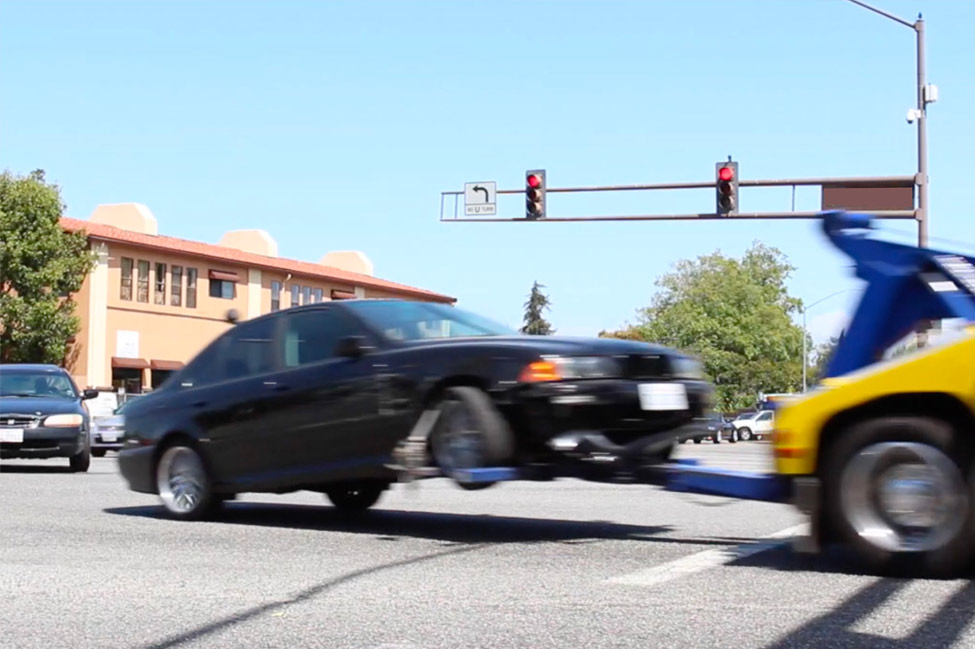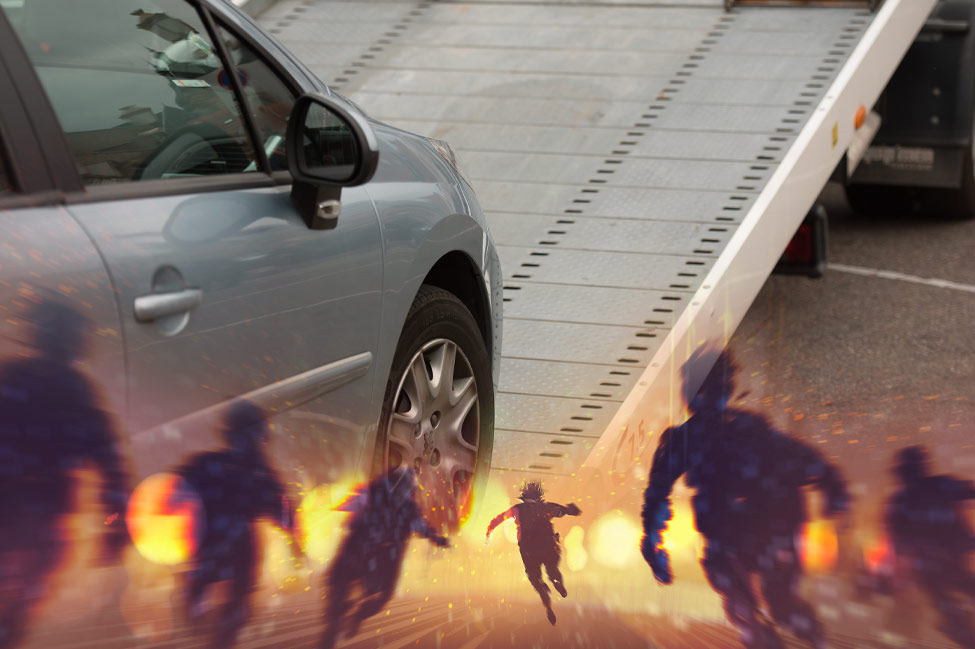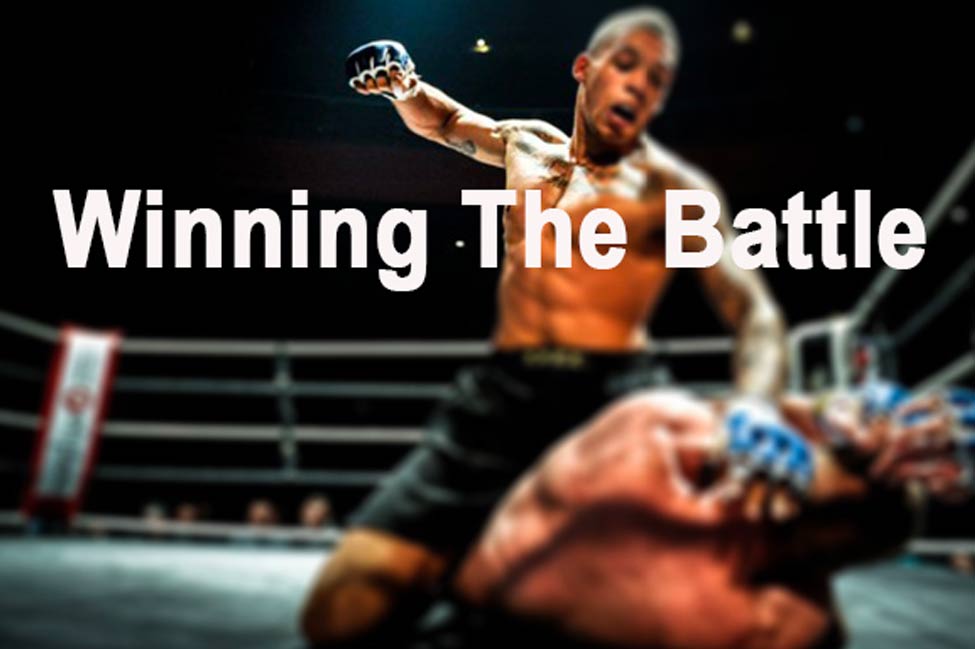If what you’re doing isn’t working, do something else.
In Steven Johnson’s book “Where Good Ideas Come From,” he introduces the reader to the Daphnia water flea. As he explains it, these tiny creatures are more of a crustacean than a flea really. Only a few millimeters long, they live their entire lives in ponds or swamps. They’re all females, and when times are good, they reproduce asexually. But when times get tough and drought sets in, then they start producing males and begin reproducing sexually.
The Daphnia have these strange reproductive habits for two reasons. First, it makes their eggs sturdier, ensuring the survivability of the next generation. But primarily because it’s built into their nature to make a change if what they’re doing isn’t working.
This same survival skill is built into all of us, but it wasn’t until I met Louise that I came to fully understand how it works.
Louise was out of control and in handcuffs on her way to jail. Ten months earlier, she’d been awarded a substantial sum of money from a workplace injury lawsuit and, up until a few weeks ago, was living the high life. But now the money was gone. Her children were in foster care, her husband left, and she needed money to feed her newly developed party habits.
After burning many bridges and scattering the ashes with most of her family and friends, she had the big idea to stop in at her brother’s place—to ask for money. That’s where things went wrong.
To begin with, the two weren’t close. Louise hadn’t spoken to her brother for more than five years, and he wasn’t about to just give her money. Besides, he had children of his own and didn’t want Louise at his house, with those “druggies,”…as he put it. A fight soon followed, and he called the law. Louise was taken into custody on DUI and other charges, and we were called to tow her car.
More than a month later, Louise was released from jail and found her way to my office. With a look of desperation, she walked in and said she wanted to talk. But what she really wanted was her vehicle without being required to pay.
But I welcomed her in anyway and listened to her story.
Only the names had changed, I told myself, as I’d heard dozens of variations of excuses over the years.
She started out by recounting her trouble with the law and not having support whilst in jail. Then onto the fact that she had no money and was required to attend rehab and the costs involved there. And as I sat dutifully listening, I watched as her posture and body language changed with each attempt to soften my response. When one approach seemed only to glance off my stoic resolve, she tried another and another. And I know it might sound crazy, but as I watched her shift and change as she explained her situation—she reminded me of the Daphnia water flea.
The Daphnia have learned that when times get tight, you can’t continue doing what was working during the good times. You can’t just protect your way of life and expect everything to change to suit you. You’ve got to change yourself and then connect to survive and thrive. And this whole thing made me think about how motor clubs adapt as well and how they’re now disguising themselves as towing Apps, doing anything necessary to survive in this new era of technology.
Then suddenly, the door slammed shut, and my mind came back to the room with Louise. She was now crying and holding a baby on her hip…the child obviously placed as a prop while I’d been daydreaming.
I’d already told her my position. “We must be compensated for our services.”
And I’d even given as much as I could, offering to cut the bill in half.
But she had no money.
Her crying continued, and then the baby began to cry…and I wanted to escape.
Then as the child began to wail uncontrollably, I recalled something I’d read while searching for healthier alternatives when dealing with conflict among customers and employees.
In the book “Conscious Choosing for Flow,” the author, Hayden, talks about how child caregivers are trained to get a child to stop crying. You see, when a child is crying or out of control, the caregiver is instructed to ask the child a direct question, like, “Those are nice boots. Who gave them to you?” When this type of question is asked, it prompts the child to remember, and the crying stops.
But it’s more than just redirection or psychology at work here—it’s physiology. It’s the remembering that’s the magic.
Hayden explains it this way; he says our brains hate a vacuum. And when presented with a question, we access memory to find the answer. This sends electrical impulses to where memory exists, in the higher reasoning parts of the brain. And this causes our reptile brain (the part that’s acting out) to disengage while our rational brain engages, therefore deescalating the drama.
I decided to give it a try. I looked at Louise and then at the baby, both still crying—and said, “That’s a good-looking boy. When was he born?”
And in an instant, Louise stopped crying. Her face changed from being upset to being curious. Then I watched as her eyes looked up and to the right as if searching for something in her head.
She was accessing memory.
She then told me the boy’s birthday and his name…and that he was really her sister’s boy. She then looked at him, quieted his crying, and took him out to the car where his mother was waiting.
It worked like a charm.
Moments later, she came back, apologized for the crying, and said that she would try to come up with the money and would be getting back in touch with me in a week or so.
For me, asking that question was just an experiment—not a yearning for deeper meaning. And yes, it worked partly due to physiology and how the brain works. But I think there’s something more to it. I think that, just like the water flea, all of Louise’s actions were brought about because of her desire to connect. Who knows, it might have been the same reason she’d spent all her money so fast. When the pleading didn’t work, she tried storytelling. When that didn’t work, she tried crying. And nothing. But when I asked her the question about the boy…although it may not seem huge to you or me, it was huge to her. She got what she wanted…connection.
I’d like to tell you that from that point on, I became a more caring and empathetic human being, but it’s not the case. I must work on it every day. And although I still feel the need to be guarded in many instances, I did learn something. I learned that hardening our hearts and closing ourselves off to the difficulties others face, for fear of loss and being sucked in, can cause us to get the exact opposite result we’re looking for. And that even if you have to “fake it till you make it,” connecting is the better way to go.







Leave A Comment